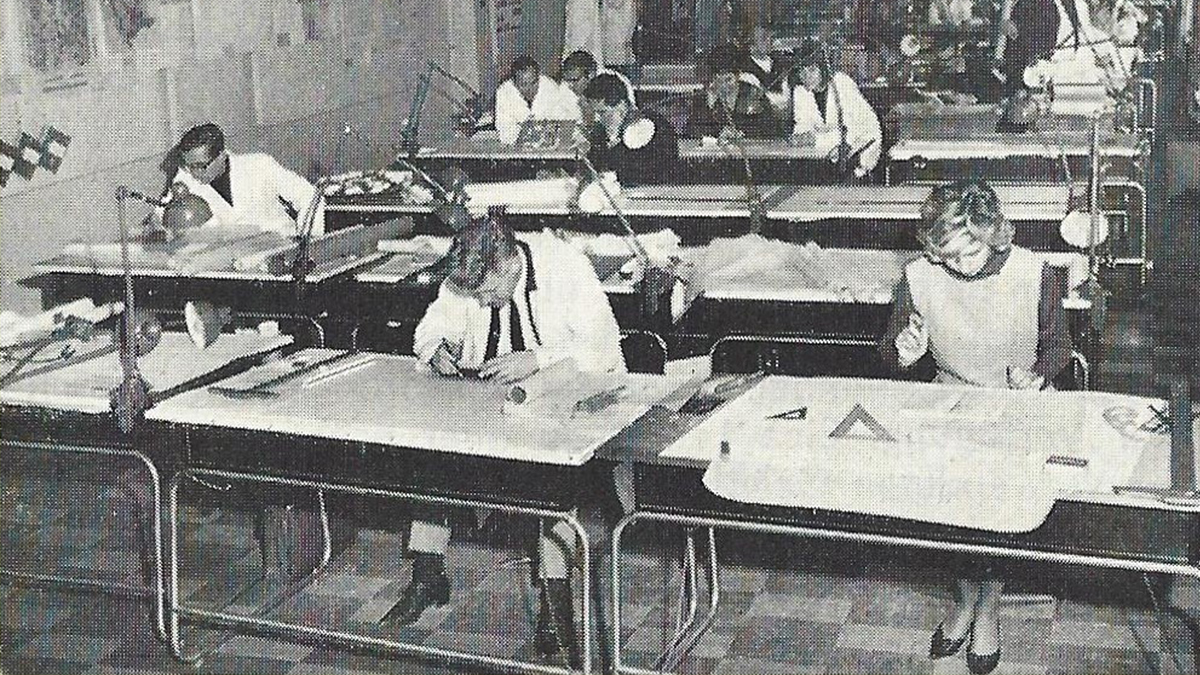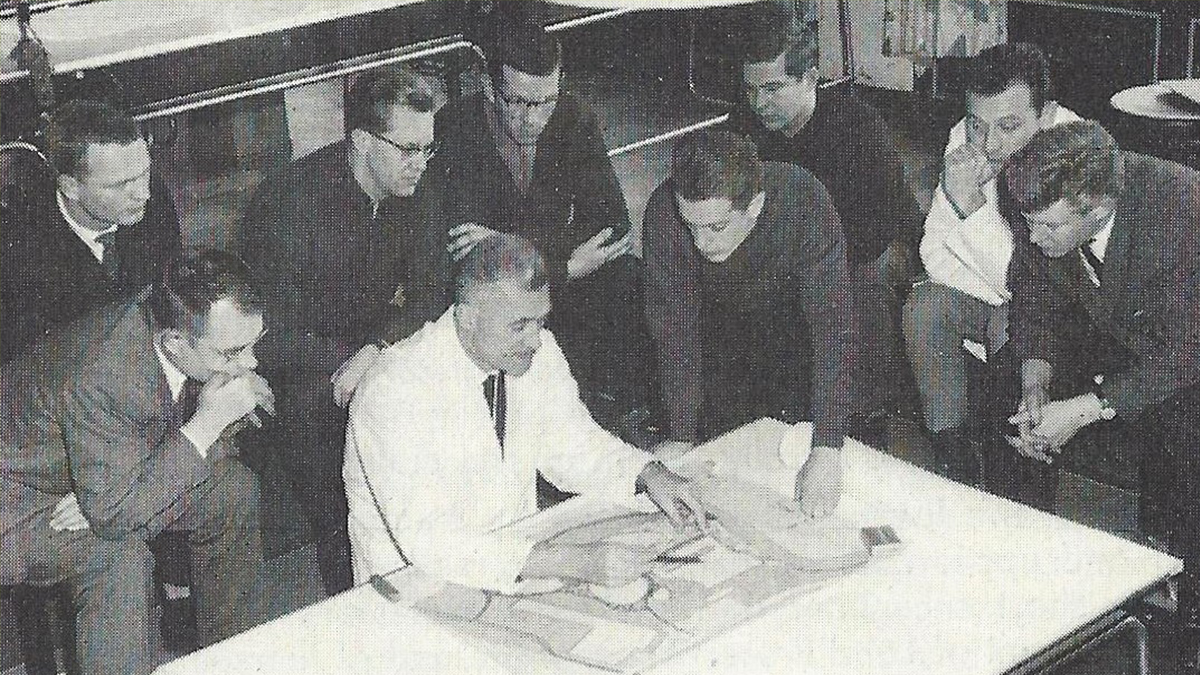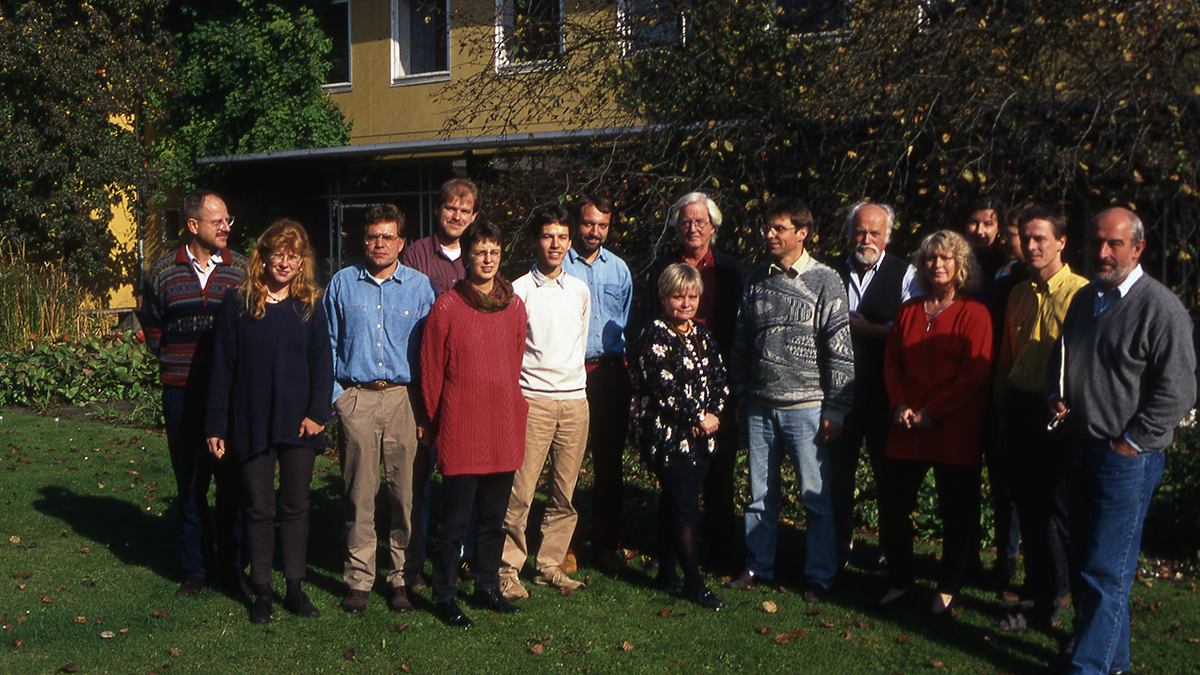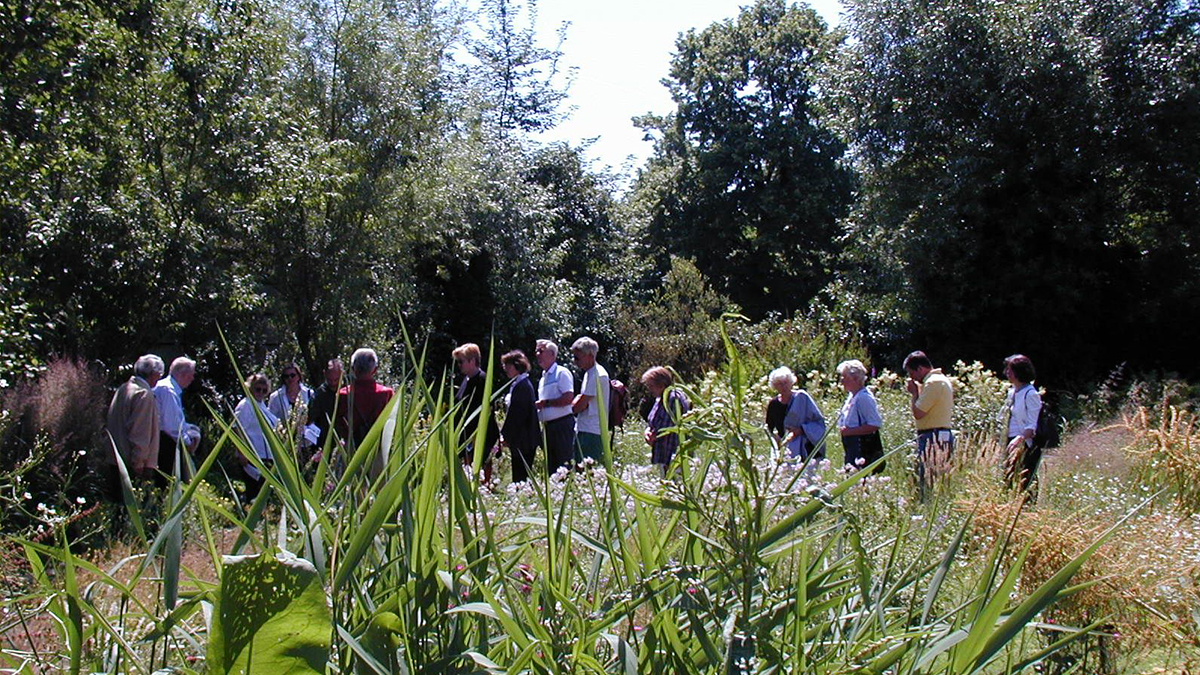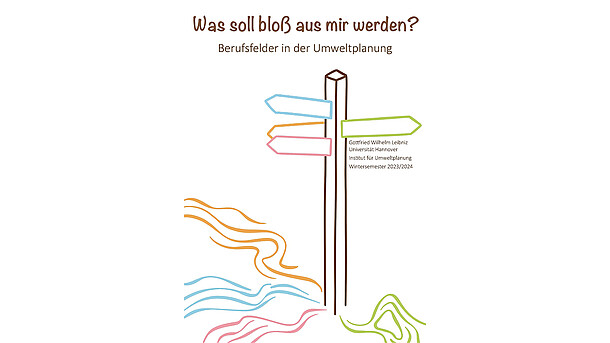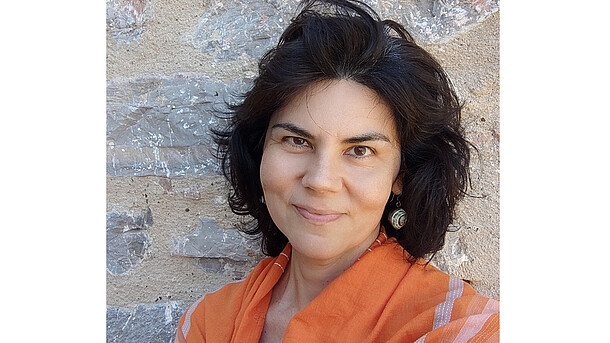The beginnings of university education up to the time of National Socialism
University teaching of landscape architecture and environmental planning in Germany started in Berlin. Here, an Institute of Garden Design was established in 1929 at what was then the Agricultural College. The first chair holder, Prof. Erwin Barth, had previously been garden director of Berlin. His motto, "Gardens for the sake of people," represents the linking of garden art with a social component. However, Erwin Barth was only able to leave his mark on the education for a few years, as he passed away by suicide in 1933.
Under his successor Heinrich Wiepking, the subject became closely linked to the National Socialist policy of conquest from 1935 onwards. Wiepking introduced (large-scale) landscape design into the education, which his predecessor Erwin Barth had still excluded, and applied for the renaming of the institute to "Institute for Landscape and Garden Design". This took place in 1939.
Under the direction of Konrad Meyer, who had been a member of the Prussian Ministry of Culture since 1933 and professor of agronomy and agricultural policy at the University of Berlin since 1934, Heinrich Wiepking was actively involved in the "General Plan East". According to this plan, under Heinrich Himmler, the expulsion and death of millions of people from the Eastern European peoples was planned in order to create more living space for Germans. This endeavor was also reflected in university teaching: "The New East" became the "task for our students." In 1934, for example, Wiepking formulated as a topic for a thesis "to landscape the new city of Auschwitz." Wiepking's "Landscape Primer," published in 1942, and his numerous essays in journals such as "Neues Bauerntum" testify to his involvement in the Nazi policy of conquest.
After the liberation from National Socialism, Konrad Meyer was accused in Nuremberg. Heinrich Wiepking, however, was able to return to work without any problems and went to Hanover. Konrad Meyer also later worked here again as a university lecturer.
Over 70 years of teaching and research on the design of the spatial environment in Hannover
Together with the garden architect Wilhelm Hübotter, Heinrich Wiepking succeeded in rebuilding the course in Hanover. In 1947, the "Institute for Landscape Management, Landscape and Garden Design" was established in Sarstedt near Hanover with the founding of a college for horticulture and regional culture. An eight-semester course of study in landscape management led to the degree "Diplom-Gärtner". In 1952, the green college was incorporated into the Technical University of Hanover as the "Faculty of Horticulture and Land Culture" and two years later moved from Sarstedt to Hanover-Herrenhausen. Here in 1956, Konrad Meyer also took up his position as a university lecturer at the newly established Chair of Agriculture and Regional Planning.
In 1958, the former Institute for Landscape Management, Landscape and Garden Design was divided into an Institute for Green Planning and Garden Architecture (today Landscape Architecture ILA) (Institut für Grünplanung und Gartenarchitektur (heute Landschaftsarchitektur ILA)) and an Institute for Landscape Management and Nature Conservation (ILN)(Institut für Landschaftspflege und Naturschutz (ILN)). Together with the new Chair of Agriculture and Regional Planning, which became the Institute of Regional Planning and Spatial Research (ILR) (Institut für Landesplanung und Raumforschung (ILR)) in 1969, both formed the Department of Regional Conservation.
For almost three decades, there had been no critical examination of the history of the subject - neither in Hannover nor elsewhere. It was not until the late 1970s that seminars on the National Socialist era were included in the course offerings for the first time; the lecturer was Gert Gröning, then a research associate. Since then, research into the history of the discipline under National Socialism has taken place in Hannover and elsewhere.
Important contributions to this are:
Gröning, Gert und Joachim Wolschke 1983: Naturschutz und Ökologie im Nationalsozialismus. In: Die Alte Stadt 10, 1, 1-17.
Gröning, Gert und Joachim Wolschke-Bulmahn 1987: Die Liebe zur Landschaft. Teil 3: Der Drang nach Osten. Zur Entwicklung der Landespflege im Nationalsozialismus und während des Zweiten Weltkrieges in den 'eingegliederten Ostgebieten'. Arbeiten zur sozialwissenschaftlich orientierten Freiraumplanung 9. Minerva, München.
Kellner, Ursula 1998: Heinrich Friedrich Wiepking (1891-1973) – Leben, Lehre und Werk. Dissertation, Universität Hannover.
At about the same time as the historical reappraisal began, the discipline underwent a reorientation that can be described as a paradigm shift. Particularly in Hanover, a social orientation was introduced into education in those years by Gert Gröning and Werner Nohl. The old, historically burdened term "Landespflege" was replaced by the new term "Freiraumplanung" (open space planning), which was to stand for a user-oriented orientation of the discipline and did (for the first time: Gröning, Gert und Werner Nohl 1972: Freiraumplanung – Versuch einer Orientierung. In: Stadtbauwelt 63, 34, 108-109).
The social discussion about social and political reforms led to the foundation of the "Institute for Landscape Planning of Metropolitan Areas" in Hanover in 1974. At about the same time, the course of study was fundamentally reformed, project studies were introduced as early as 1971, and the degree was renamed "Diplom-Ingenieur der Landespflege".
Sociology was included as a core subject in education in Hannover and was represented by a professorship (Prof. Ulfert Herlyn, Prof. Wulf Tessin). It finally also found its place in an institute name: The "Institute for Landscape Planning of Urban Areas" became the Institute for Open Space Development and Planning-Related Sociology (IFPS) (Institut für Freiraumentwicklung und Planungsbezogene Soziologie (IFPS)). Since 1980, Gert Gröning and Ulfert Herlyn published the book series "Arbeiten zur sozialwissenschaftlich orientierten Freiraumplanung". Today, this phase is also already history: With the retirement of Prof. Dr. Wulf Tessin in 2008, the professorship for planning-related sociology was dropped.
In 1980, in the course of the abolition of faculties and the formation of smaller units, the Department of Landscape Management became the Department of Landscape Management (Fachbereich Landespflege); the Institute of Vegetation Science (now the Institute of Geobotany), which was added in 1967, moved to the Department of Biology.
The study reform in the 1980s retained the practice-oriented project studies; those who had now graduated were "Diplom-Ingenieurin oder Diplom-Ingenieur der Landschafts- und Freiraumplanung". The department gave itself the new name "Landscape Architecture and Environmental Development" ("Landschaftsarchitektur und Umweltentwicklung") in the 1990s. The inclusion of the designation "Environmental Development" in the department name illustrates the increased focus on ecological teaching and research content since the 1980s, primarily represented at the Institute for Landscape Management and Nature Conservation (ILN) (Institut für Landschaftspflege und Naturschutz (ILN)).
Today: A joint faculty with architecture
With the reorganization of the University of Hannover in 2006 and the formation of faculties as larger units, the joint Faculty of Architecture and Landscape (Fakultät für Architektur und Landschaft) was created from the two departments of Landscape Architecture and Environmental Development and Architecture.
Shortly before, the two institutes for Landscape Management and Nature Conservation and for Regional Planning and Spatial Research had been merged to form the Institute for Environmental Planning (IUP); initially they existed as the Landscape Management and Nature Conservation Department and - since 2010 with a new name - as the Spatial Planning and Regional Development Department within the IUP. At the end of 2021, departmental structure was abandoned. Since then, the Institute for Environmental Planning has been divided into six working groups, of which the WG Spatial Planning and Regional Development corresponds to the former department of the same name.
In the winter semester 2006/07, the study programme was changed to the Bachelor's programme "Landscape Architecture and Environmental Planning" and the two Master's programmes "Landscape Architecture" and "Environmental Planning". Study projects continue to be the central form of learning. The "European Master in Territorial Development - EuMiTD" was introduced as an international degree programme in the 2014/15 winter semester.
The programme was renamed in the winter semester 2020/21:
The M.Sc. Environmental and Regional Planning, Major Nature Conservation and Landscape Planning replaced the previous M.Sc. Environmental Planning.
The M.Sc. Environmental and Regional Planning, Major Regional Planning replaced the previous M.Sc. European Master in Territorial Development - EuMiDT.
(Roswitha Kirsch-Stracke 2021)

